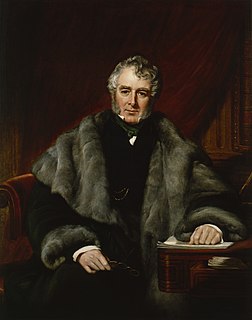A Quote by George Bernard Shaw
The capacity of any conqueror is more likely than not to be an illusion produced by the incapacity of his adversary.
Related Quotes
The Criteria of Emotional Maturity: The ability to deal constructively with reality The capacity to adapt to change A relative freedom from symptoms that are produced by tensions and anxieties The capacity to find more satisfaction in giving than receiving The capacity to relate to other people in a consistent manner with mutual satisfaction and helpfulness The capacity to sublimate, to direct one's instinctive hostile energy into creative and constructive outlets The capacity to love.
No one is fit to encounter an adversary's case successfully unless he can make it for a moment his own, unless he can put it more forcibly than the adversary could put it for himself, and take account not only of what the adversary says, but also the best he MIGHT say, if only he had chanced to think it.
Nonviolence seeks to ‘win’ not by destroying or even by humiliating the adversary, but by convincing [the adversary] that there is a higher and more certain common good than can be attained by bombs and blood. Nonviolence, ideally speaking, does not try to overcome the adversary by winning over [them], but to turn [them] from an adversary into a collaborator by winning [them] over.
Educational exchange can turn nations into people, contributing as no other form of communication can to the humanizing of international relations. Man's capacity for decent behavior seems to vary directly with his perception of others as individual humans with human motives and feelings, whereas his capacity for barbarism seems related to his perception of an adversary in abstract terms, as the embodiment, that is, of some evil design or ideology.
[The Community's] crosses and trials give me confidence. But I derive my hope above all, and most especially, from our utter incapacity, for it is always upon nothingness that God is pleased to rear His works. If at any day we accomplish some good here, the glory will certainly be His alone, since He has employed for this end instruments more capable of spoiling everything than of making it succeed.
And we shall most likely be defeated, and you will most likely be victors in the contest, if you learn so to order your lives as not to abuse or waste the reputation of your ancestors, knowing that to a man who has any self-respect, nothing is more dishonourable than to be honoured, not for his own sake, but on account of the reputation of his ancestors.
Giap was a master of logistics, but his reputation rests on more than that. His victories were achieved by a patient strategy that he and Ho Chi Minh were convinced would succeed - an unwavering resolve to suffer immense casualties and the near total destruction of their country to defeat any adversary, no matter how powerful.
I believe there are more instances of the abridgment of the freedom of the people by gradual and silent encroachments of those in power, than by violent and sudden usurpations; but, on a candid examination of history, we shall find that turbulence, violence, and abuse of power, by the majority trampling on the rights of the minority, have produced factions and commotions, which, in republics, have, more frequently than any other cause, produced despotism.
There's no reason - not yet, anyway - to believe [Bob] Dylan himself endorses such an attitude; or that he would think of himself as a more profound and worthy recipient than, for instance, any of the brilliant Motown or girl-group lyricists who are more likely to be awarded a Nobel prize for chemistry than for literature. Whether there is more truth and humanity in his best lyrics than in Abba's, or less, is unquantifiable, and it would be meretricious to attempt such a calculation in contesting an argument he has been dragged into.







































